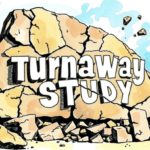Turnaway Study Exposed for Deceptive Abortion Suicide Report, New Study
—For Immediate Release—
November 12th, 2024 (Pensacola, FL)
A prominent study claiming to have disproven research linking abortion to elevated risks of suicide has itself been proven to be inaccurate and deceptive, according to a new reanalysis of Turnaway Study data.
The original analysis, conducted by Advancing New Standards in Reproductive Health (ANSIRH), reported no significant differences in suicidal thoughts between 717 women who had abortions and 160 women who had been turned away by abortion providers. This lack of any difference led them to conclude that dozens of studies linking abortion to elevated rates of suicide were in error.
But a new analysis of the same data reveals that the weak suicidality scales employed in the Turnaway Study required interviews with at least 7,644 women, and preferably 141,308, before the authors could have detected any significant differences.
“The Turnaway Study is simply too small, and uses scales that are too insensitive, to identify any meaningful results,” said David Reardon, the author of the new study and over 40 other peer reviewed medical studies examining the harms of unwanted abortions on women.
Background of Turnaway Study
Data for the Turnaway Study was collected by ANSIRH, a department at the University of California San Francisco dedicated to advancing abortion access both domestically and abroad. The Susan Thompson Buffett Foundation, which has provided over $4 billion dollars to advance Malthusian population control efforts is the department’s largest benefactor.
Thirty abortion clinics assisted ANSIRH in a selective recruitment of participants. Over fifty academic papers have been published based on ten interviews, six months apart, of the women who agreed to participate.
“ANSIRH is trying to claim that just because they have spent the most money on their study, that alone makes their findings more reliable than scores of other, better designed studies.” said Reardon.
Reardon argues that the Turnaway Study is also deeply flawed by its reliance on a non-random, non-representative sample.
“Not everyone seeking an abortion was invited to participate. Many women were selectively excluded,” said Reardon. “And even among those invited, seventy percent refused, another 15% dropped out before the first interview, and over half of the remainder dropped out before the last interview. As a result, there was self-censure by the women who anticipated the most distress, or subsequently experienced more distress.”
Reardon was able to test this selection bias in a random national survey of women. That study employed the same question used by ANSIRH to gauge the degree women felt they had made the right decision to abort. The resulting comparison revealed that the Turnaway Study grossly underrepresents the subgroup of women who are most likely to attribute negative reactions to their abortions.
ANSIRH Unethically Used Women’s Names and Addresses

Reardon has also documented that ANSIRH has unethically used the names and addresses of those contacted for the Turnaway Study to obtain their credit records, including court appearances, without their subjects’ permission.
“Retrieving credit history data without the knowledge or consent of study participants is a clear and grave violation of research ethics,” said Reardon. “It is even worse that this was done using the names and addresses of women who had immediately dropped out of the study.”
Over 170 women who had told abortion clinic workers that they were willing to be interviewed by ANSIRH refused to participate in the first interview scheduled in the week following their recruitment. Several hundred more dropped out before subsequent interviews.
“It is simply wrong to assume that a study participant’s consent to be interviewed includes tacit permission to access their credit histories and court records—especially eight years after they had already withdrawn from the study—without ever informing them of this intent,” said Reardon.
STROBE Reporting Standards Routinely Violated by ANSIRH
The guidelines for publishing research results are described by STROBE (STrengthening the Reporting of OBservational studies in Epidemiology). STROBE instructs authors to carefully “give a cautious overall interpretation of results considering objectives, limitations, multiplicity of analyses, results from similar studies, and other relevant evidence.”
According to Reardon, ANSIRH’s studies often ignore this standard. Specifically, in the Turnaway Study suicidality analysis, the authors ignored or dismissed a large body of studies with better sample sizes and better measures of suicidal thoughts and behaviors.
“It’s like surveying thirty classes of seniors to ask how many had thoughts of suicide in the last seven days and then trying to assert your findings are superior to every other study, for every age group in the whole country,” said Reardon.
“ANSIRH is consistently overreaching in their claims. Often, their generalizations are even inconsistent with their own data. Their ideologically driven conclusions are disservice to women. It is also a distraction from the fact that we are facing a national crisis of women who report being pressured into unwanted abortions.”
###
References
Reardon DC. A Forensic Investigation and Critique of Suicidal Ideation Reported in a Turnaway Study. The Linacre Quarterly. 2024;0(0). doi:10.1177/00243639241281978 Pre-print available at https://zenodo.org/records/10892141
Reardon DC. Turnaway Study Report Unethically Violated Participants’ Privacy and Misleads Public with a Non-Representative Sample, Selective Reporting, and Overstated Conclusions. Issues Law Med. 2024 Fall;39(2):140-169. doi: 10.70257/TWGF1217. PMID: 39446261.
Reardon DC, Rafferty KA, Longbons T. The Effects of Abortion Decision Rightness and Decision Type on Women’s Satisfaction and Mental Health. Cureus. 2023 May 11;15(5):e38882. doi: 10.7759/cureus.38882. PMID: 37303450; PMCID: PMC10257365.
Reardon D C, Longbons T (January 31, 2023) Effects of Pressure to Abort on Women’s Emotional Responses and Mental Health. Cureus 15(1): e34456. doi:10.7759/cureus.34456

